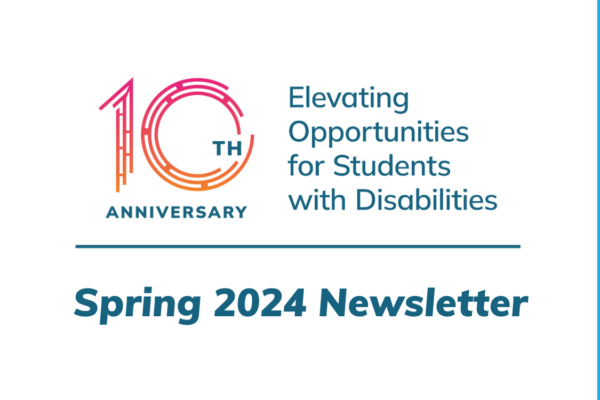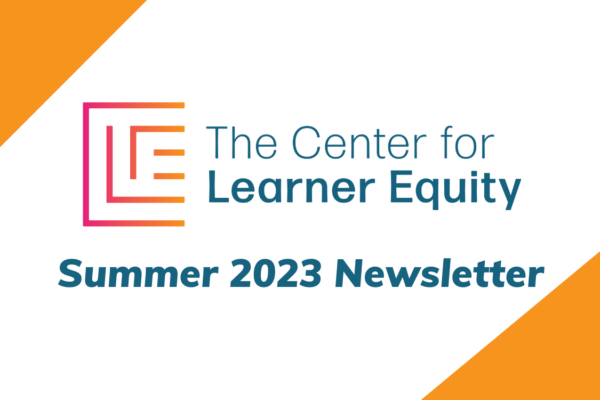Federal funding for special education is critical to ensuring students with disabilities receive the services and supports they need. It is also a foundational investment in schools implementing quality instruction for all students. With the education policy landscape rapidly evolving, here’s what we’re tracking, what to watch, and how we can continue to uplift our vision around the future of education. Who does chronic underfunding impact? Nearly one in five students in the U.S. has a disability. Importantly, 85% of these students can achieve grade-level outcomes on par with their peers when they receive quality instruction tailored to their learning needs — using universal instructional strategies proven to benefit ALL students. That’s why fully funding individualized instruction and supports for 20% of public school students is the key to helping students with disabilities thrive. What’s missing from the conversation? A key part of the conversation that is often overlooked when talking about current federal funding levels is that the Individuals with Disabilities Education Act (IDEA) has never been fully funded at the levels promised since its passage in 1975. Fifty years ago, Congress codified a commitment to educating and including children with disabilities, establishing the right to a free, appropriate […]
The Civil Rights Data Collection (CRDC) is the only nationwide comprehensive look at access and opportunities for all students, including students with disabilities. For more than five decades, CRDC has captured data on students’ equal access to educational opportunities. The critical insights provided by the data has helped schools understand and adhere to essential civil rights laws, whose implementation and enforcement is led by the Department of Education’s Office for Civil Rights (OCR). With recent efforts to dismantle the Department of Education (ED), continuing to uplift this data has taken on a new urgency. As a leading voice on behalf of students with disabilities in all public schools — and lead author of the only reports available on the experiences of students with disabilities in charter schools — CLE understands the tremendous value of the CRDC data in informing research, policy, and best practice. Leveraging CRDC data can help schools and advocates better understand the experiences of their students with disabilities — and direct their attention towards improving areas of inequity to create the conditions for students to thrive. With the release of two new reports, CLE analyzed what CRDC data reveals regarding students with disabilities’ experiences in schools, and […]
Inclusive hiring isn’t just a trend; it’s a strategic imperative for any innovative and proactive organization today. It goes beyond compliance; it’s about recognizing the inherent value that inclusivity and diversity bring to an organization. It is committing to actively seeking out individuals from different backgrounds, experiences, and perspectives. Understanding Inclusive Hiring: At its core, inclusive hiring is about creating equitable opportunities for everyone, regardless of any seen or unseen characteristics. Inclusive hiring recognizes the systemic barriers in our society that may prevent certain groups from accessing employment opportunities. It is a daily commitment to fostering a workplace culture where everyone feels respected, valued, and empowered to contribute their best. Recruitment systems must be structured to combat the inequity that has been normalized within the human resource industry. At the Center for Learner Equity (CLE), we recognize the difference between equity and equality; anything short of belonging and justice is not enough. The Business Case: While our drive and desire to pursue equity because of value alignment is enough, a strong business case can also be made. Research has consistently shown that diverse teams outperform their industry peers in terms of innovation, problem-solving, and overall performance¹. When you bring together […]
Access our newsletter.
The pandemic has ushered in a new era of student discipline, both in and outside of the school building.
Access our newsletter.
On this 33rd anniversary of the Americans with Disabilities Act (ADA), we honor and celebrate its profound impact on our society while also recognizing that the promise of this groundbreaking civil rights law has yet to be fully realized. Our hope is to both celebrate the achievements and advocate for even greater change.





